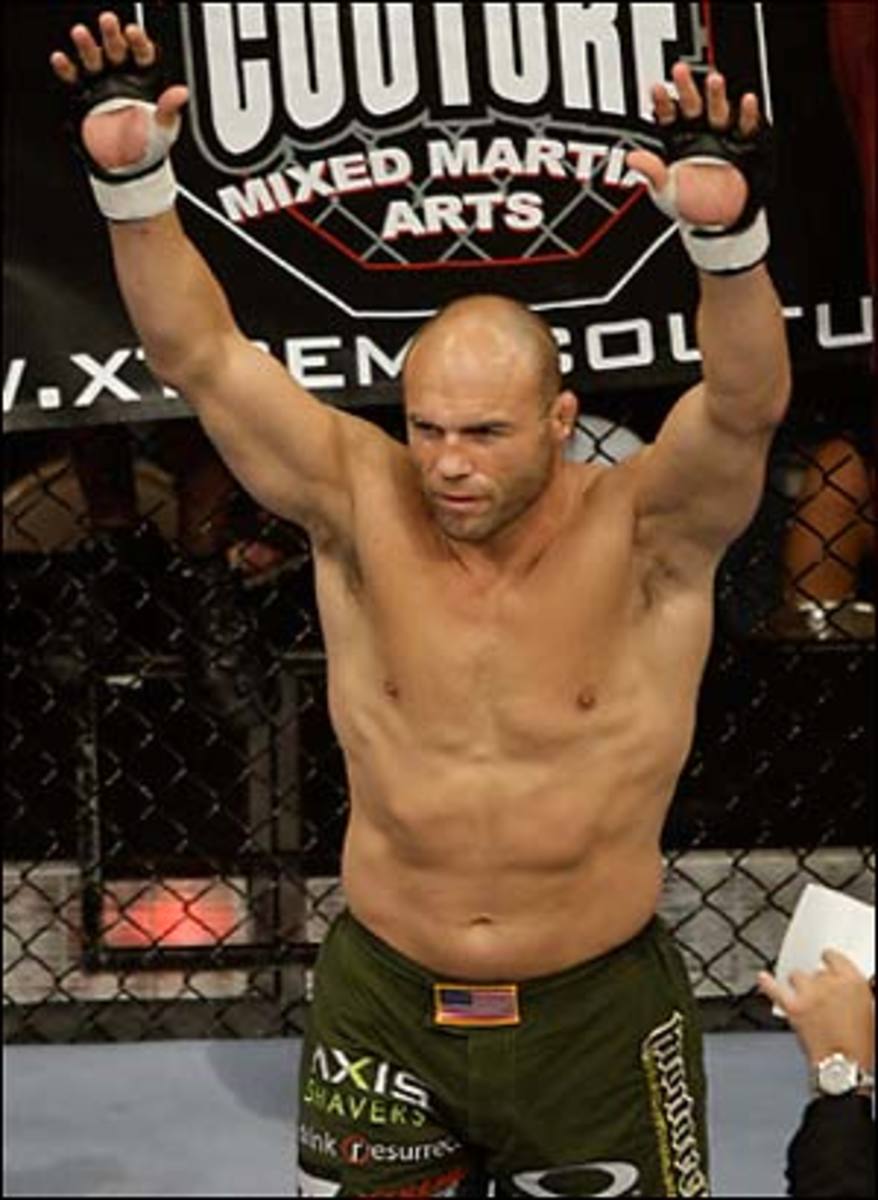Weak Paydays
Since one of the biggest names of the UFC, Randy Couture, walked away from the his belt last month, citing UFC president Dana White's inability to provide a little respect and a big Russian (Fedor Emelianenko, the only man the 44-year-old Couture wants to fight at this stage of his career) the MMA world has been buzzing. About respect and Russians, sure. But mostly about money.
The war of words -- or, rather, press conferences -- that broke out after Couture's announcement was ugly. Up and down Couture swore that he resigned on principle, in part to take a stand for other fighters who aren't getting what they deserve. Then he held up a copy of his contract and dissected the inequity of being paid around seven figures per fight.
White didn't even feign nobility. He waved Couture's cashed checks in the air, accused his heavyweight poster boy of dissembling about a $500,000 signing bonus and described how he "bitch slapped" Couture's agent.
Couture has a right to be upset if, as he claims, White offered Emelianenko a salary that would have instantly leapfrogged a newcomer unknown to most American fans over one of the UFC's most beloved and recognizable champions. But Couture was earning big money for a young sport. Now he's parlaying his UFC appeal into an acting career and a chain of successful gyms.
"Most guys aren't going to feel sorry for guys like that," said Monte Cox, the CEO of newly formed M-1 Global, which now has Emelianenko under contract after negotiations with the UFC fell apart.
Very few fighters deserve Couture-size paydays. But for years, salaries in American MMA dropped off precipitously outside the handful of fighters at the top of the UFC. Almost everyone else scraped by. Many still do, supplementing incomes with part-time construction gigs, work as bouncers or, as has become more common with the growth of the sport, teaching martial arts. The lunch-pail experience of UFC lightweight champion Sean Sherk, who made $250 for his first fight in 1999 and $2,000 for his first UFC fight in 2002, is still not unusual.
This week, a group of businesspeople and former athletes launched the World Alliance of Mixed Martial Arts, a company that, rather than promote events, hopes to become an umbrella sanctioning body, ranking fighters and recognizing unified champions from the various MMA organizations. The UFC is unlikely to cooperate, but the new venture might be a sign of things to come for fighters who are scraping to make it by.
Consider Anthony Lapsley, a solid fighter competing in events an orbit removed from the UFC. Last week in a King of the Cage show in Reno, Lapsley made $4,000, half of which was a win bonus, for his main event victory over Jaime Jara. Given the wear-and-tear on their bodies and the intensity of training, most fighters have about four fights a year. Lapsley has fought 11 times in 2007, according to Full Contact Fighter's database.
Athletes like Lapsley dot the cards of lesser events throughout the country. And opportunity for them is on the rise. The UFC still dominates MMA, but in the last year several new and ambitious organizations such as M-1, HDNet Fights and EliteXC have started up and now offer talented fighters -- particularly those who aren't marquee UFC names -- respectable paydays and a growing audience.
"These other organizations are forming the AAA of MMA," said Cox, who also manages 56 fighters, many of them top-level pros. "When groups like [these] come into the picture, it really helps the guys who would be close to being the main event in the UFC be the main event in these other organizations."
Cox says the fighters most likely to benefit are the ones who have already climbed partway up the ladder and are making $5,000 to $20,000 for a win in the UFC. "Some of those guys that were making $10,000 and $10,000 [to show and win] in the UFC might get $25,000 and $25,000 in another organization," he says.
In recent months, the UFC, perhaps under more pressure to please its junior fighters, has beefed up salaries and started to award substantial new bonuses. At UFC 77 this October, Jason Black, a seasoned lightweight with a good record, made $8,000 for losing a three-round war against Matt Grice. Two years ago, that would have been a juicy purse. (In 2005, Justin Eilers made $8,000 for a losing effort in a UFC heavyweight title fight). But Black's bout was awarded the fight-of-the-night bonus. Even though he lost, Black pocketed an extra $40,000. The UFC awards similar bonuses for best knockout and best submission.
That's hardly the chump change doled out in years past. "Now that the UFC is doing twelve shows a year, they need more fighters under contract," Sherk said. "And there's a lot of up-and-coming shows that are paying guys good money...The sport has come a long way financially."
All the way to where a disgruntled superstar making millions calls out his volatile boss. Couture's resignation is unlikely to have much impact on blue-collar fighters, but it does shed light on top-level machinations at the UFC, where bonuses from shared PPV revenues boost paydays and depress publicly reported salaries. When the higher pay rates aren't reported from the top, they don't filter down to the bottom fighters.
"There's still a lot of work to be done," Sherk said.






